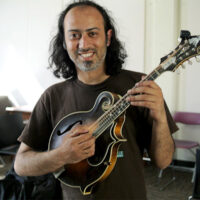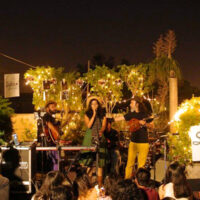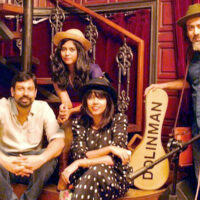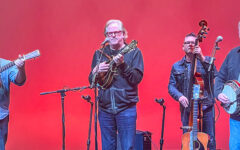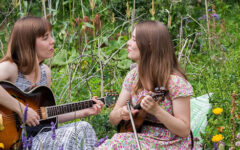
If there’s any doubt whatsoever that bluegrass boasts a wide reach, one need only look to the furtherest realms imaginable. Take India for example. Granted, that may be the last place on earth one might expect to find a musician with a penchant for the sounds of Appalachia and music performed on mandolin. Indeed, ask almost anyone what comes to mind when that Asian nation is mentioned and you’ll likely get a response that suggests it’s all about tablas and sitars.
Diptanshu Roy, founder of the band No Strings Attached as well as Folkpick, an organization dedicated to preserving and promoting Indian folk music, is out to reverse that stereotype once and for all. He’s made it his mission to find a synthesis between the sounds of his native Bengal and the archival traditions of American bluegrass.
Naturally, that’s no easy task. However Roy credits the connection created by the internet with prompting his interest.
“It all began with the internet coming in a big way into our lives in the year 2000,” Roy reflects. “I chanced upon a recording by David Grisman and it totally blew me away. I learned the mandolin as a kid and grew up listening to typical Bollywood style mandolin and Italian ballads, but I had never heard anything like what David played. So that simply hooked me on to bluegrass.”
Roy delved deeper into it by exploring Grisman’s seminal bluegrass label, Acoustic Disc. From that point on he found himself infatuated with other early icons as well. Bill Monroe, Del McCoury, Lester Flatt, Earl Scruggs, Norman Blake, Mike Compton, Tony Rice, Tim O’Brien, John Hartford, and Sam Bush are among the many musicians he says provided him the pathway into a magical musical world, one which continues to shed its influence on him even today.
The definitive point in Roy’s musical journey occurred when he traveled to California in 2014 and paid a visit to both the Mandolin Symposium and The Shasta Fiddle Camp. “I got to meet quite a few of my bluegrass heroes and hear them perform live for the very first time,” he recalls fondly.
We asked Roy to share the story of NSA’s origins. He said the idea for the band first began when he met some like-minded musicians who shared his enthusiasm.
“The first person I found who knew about this music was Sujoy Chakravorty, who actually found me through my YouTube channel,” Roy remembers. “We immediately hit a chord and formed No Strings Attached. Since then, NSA has been about collaboration, as the name suggests. The biggest challenge of making a bluegrass band is to find people who can play this kind of music in India. It’s a new genre of music for this country… so it will take time to pick up.”
Those challenges aside, Roy says he’s made it his mission to share his enthusiasm for bluegrass and grassicana in his home environs.
“We are trying to create a scene here,” he says. “We are still on the lookout for a fiddle, banjo and bass player, but we have been lucky with collaborations from musicians from across the border. Bluegrass musicians traveling from America and Europe often get in touch with us, and we have made a whole lot of friends along the way.”
He adds that the reception has been very promising.
“It’s been great,” he maintains. “We have had a good and enthusiastic audience so far. Our gigs always have good turnouts, and that’s great news.”
Roy reports that the band is currently working on a new EP which they’ve titled Bongrass. He describes it as Bengali songs rendered in a bluegrass style. “We are working with and arranging the songs of the famous Indian songwriter, Arunendu Das, for this specific project,” he explains. Bongrass will be our contribution to the bluegrass world. And in a local sense, the songs will have a wider Indian audience and much more reach.”
Still he admits that there is more work to do before the music makes it into the nation’s mainstream. “The popularity of bluegrass is niche,” Roy suggests. “It’s still not very popular in India yet.”
Still, he hasn’t given up hope of accomplishing a big breakthrough. His appreciation for bluegrass and grassicana parallels his view that those sounds possess universal appeal.
“This genre of music is simple yet complex, and it has a very specific musical vocabulary,” he muses. “That is what has always fascinated me about bluegrass. There is something real and tangible about this music that can touch hearts. And that’s what makes it so popular around the world. We are hoping that we will be able to create a similar scene here in India.”

